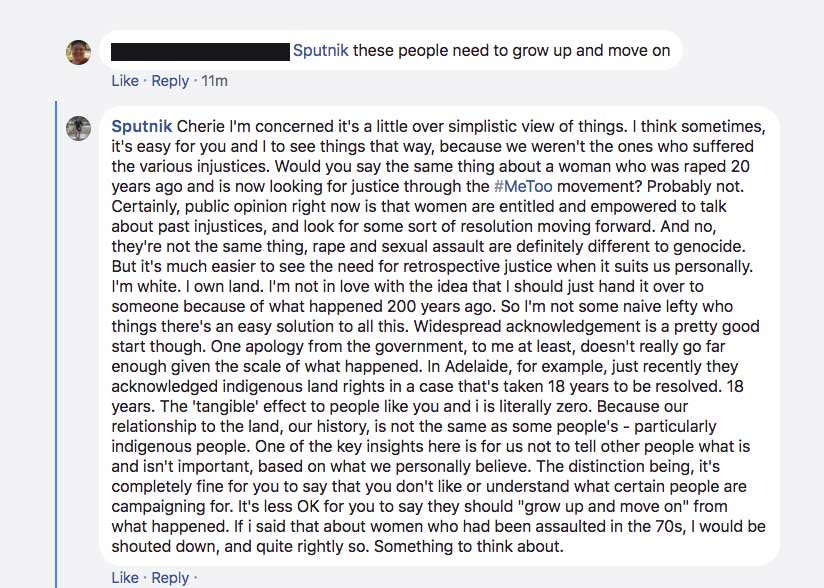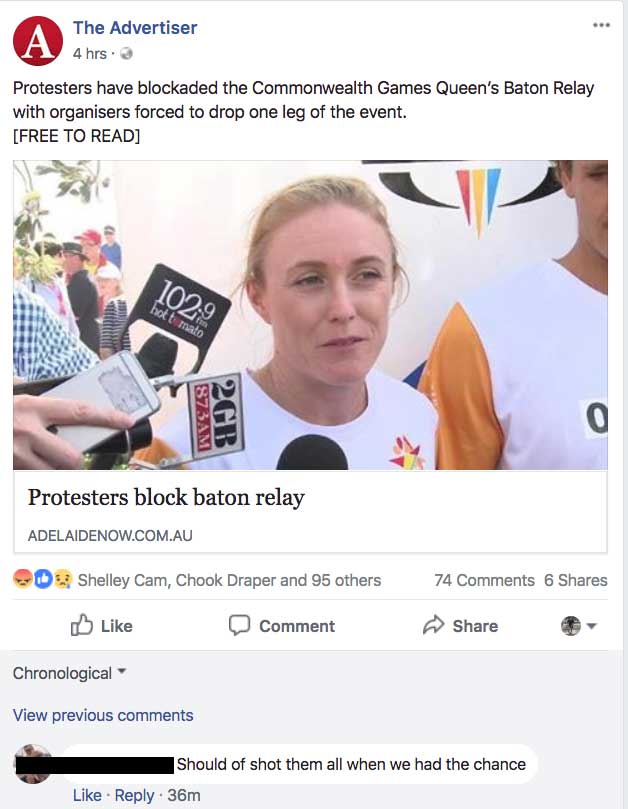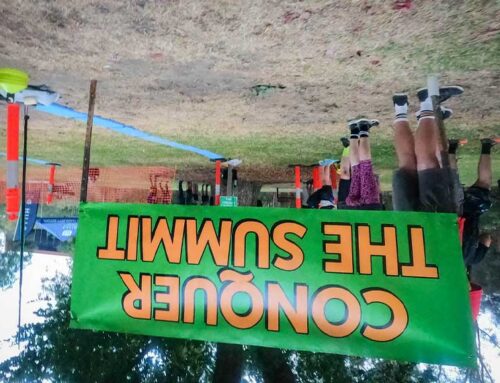
[5 minute read]
My uneasy relationship with social media is no secret. It’s like a destructive love relationship where your partner has some great qualities you love and are attracted to, but also some terrible ones that make you miserable. And it’s “too good to leave, too bad to stay”. (Perhaps some of you know what I’m talking about? 😉 )
So that’s why in recent times I’ve done the somewhat erratic on-again-off-again dance with Facebook. From the outside, it might look a bit schiz. And I suppose it is a bit.
Someone actually asked me yesterday, “Why do you bother commenting on certain things? Do you feel like you have to?” And for those of you who may have wondered the same thing, the answer is “yes”. I really do. No matter how hard I try to remain detached or impartial, there are times when I literally do feel compelled to comment on certain things. Very rarely for self gain, almost always to share ideas that I, perhaps stupidly, hope may make a difference. Even if it’s just to one single person.
Is social media the place for these ‘discussions’?
I’m well aware social media is not exactly Harvard or a TedX convention where the majority of people come to share in deep conversations about social issues and current affairs. And that most discussions or ‘debates’ on there are mostly useless as it’s more often than not two people with fixed, immovable views simply look for ways to tell the other person how they are stupid and wrong. (And yes, before anyone says anything, I have done this many times also and am not excluding myself from that!)
But yeah, I do feel compelled to comment on certain things. And if not on social media, where? Besides, I do still have faith that it can make difference. Even now that I’m logged out of my personal account, I can still access some content via my work account. I don’t see any ‘personal’ updates from my friends, but I still see certain ‘page’ updates, which means I can comment as ‘Sputnik’ through my work page. I tend not to do it anywhere near as frequently as I do from my personal account when I’m online, but from time to time if I see something I think I can genuinely contribute to, I have a go. (Like the one I’ve included below from a story about indigenous people campaigning.)
I know there’s an inherent danger in any man ever using the #MeToo hash tag for anything ever, (Which I did in my comment – see below), but I’ve spent quite a bit of time considering some of the recent indigenous protests like this one, and this one, and the inevitable related “get over it” replies on social media. (And that’s one of the nicer things people have been saying. I’ve included one sample of the more outright racist and hate filled comments down below also.) Because in some ways, we are able to reference examples of other nations that seem to have ‘moved on’ from various civil unrests and/or invasions, wars etc. (Think Germany, Japan and historically, probably 100s of others.) So clearly there is some merit in that part of the argument.
How late is too late for justice?
But on considering this, I did have to wonder, what time limit do we put on justice? If we found DNA evidence that solved a 50 year old crime would we just ‘get over it and move on’? Too late. Move on. Get over it. I’m thinking not. Do we still aim to bring war criminals from Serbia, Nazi Germany, Cambodia and various other places to justice, even though the crimes they committed were years and sometimes even decades ago? Absolutely.
We could argue that the difference here is that the actual people who committed these actual crimes have long since passed, so there is no one less to prosecute even if we wanted or were willing to. But this kind of justice isn’t really about that. If the Nazis had stolen treasure during the second world war, and it was discovered now, would there be efforts made to return it to the rightful owners? Absolutely. So perhaps that’s a better frame of reference.
Or this: If I buy a car or other item without knowing it’s stolen, and then the cops turn up to repossess it, do I explain that I should be able to keep it because I wasn’t the one who stole it, or am I shit out of luck and it goes back to the rightful owners. If in a land scam, I bought a block of land, paid my money, only to find out later that the person who sold it to me didn’t actually own it, what then? Would I have the right to keep the land? Would I be able to get my money back? Or would it simply revert to the original owner? Interesting, right?
Rules are fine – when they suit us.
Sometimes, it’s really difficult for us to relate to certain situations when they not only don’t affect us personally, but even more, don’t suit us. Which is why I used the #MeToo example as a way to remind someone that just because something happened in the past, and just because it may not have affected us personally, doesn’t mean we should just tell people to get over things. It’s funny how sometimes we’re happy to apply one set of rules ourselves when it suits us, but expect other to work to a different set of rules when it doesn’t.
As a human with white skin, the son of a refugee even, living on stolen land is not something I ever intended to do. It wasn’t even something I was inherently aware of for most of my life. So the notion of just simply handing it over and giving it back sure as shit doesn’t suit me personally. And clearly there are some fairly significant practical issues with how we do look to resolve these issues now.
So I can’t say I know what the solution to all this. (Although i did have an interesting idea the other day which perhaps I will share at a later date!) I can only say what it isn’t. And for me, telling someone to just “move on and get over it” isn’t the solution. In fact, it’s fucking insulting and just goes to show how many people have a complete lack of empathy and understanding. For me, there is no ‘statute of limitations on justice’. And I hope progress continues to be made to find ways to make things better – even if i personally have no idea how to do that.
Be awesome to each other.
- If I can make even one person think twice about their beliefs, I’ll give it a shot.
- This is just one example of the kind of comments we see in our country where people say we’re not racist.






